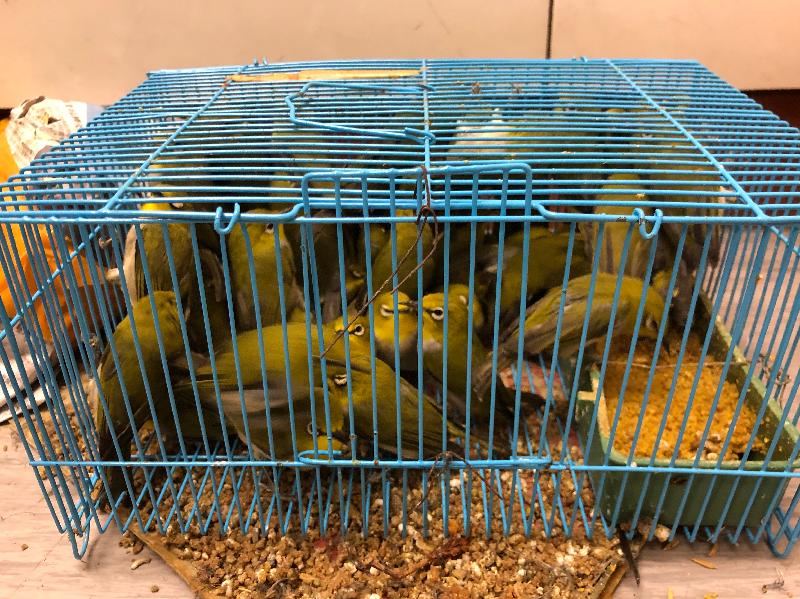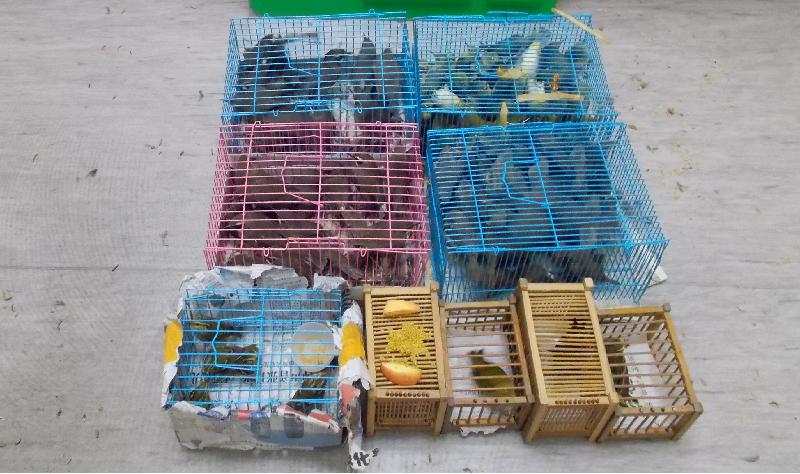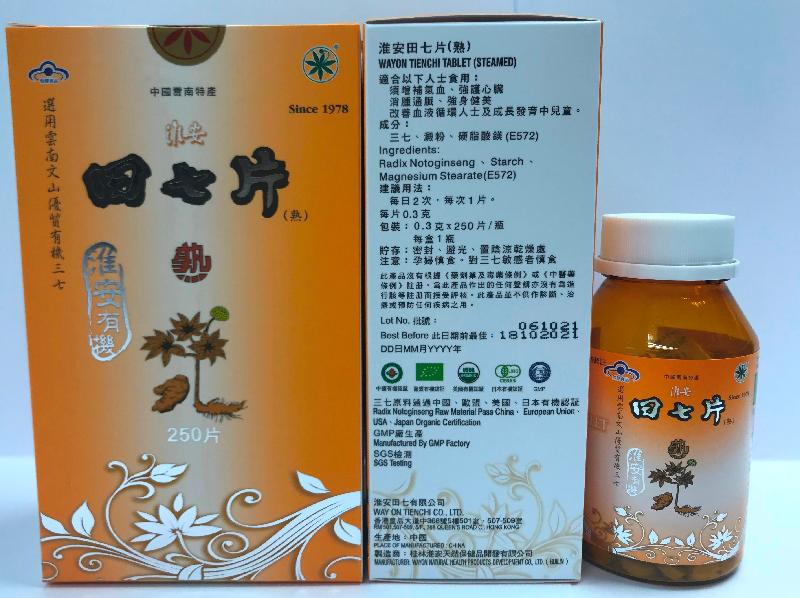The Action Committee Against Narcotics (ACAN) reviewed the local drug situation in the first three quarters of 2018 at its quarterly meeting today (December 18). The total number of reported drug abusers declined compared to the same period last year, but the rise of the number of newly reported drug abusers, hidden drug abuse and drug abuse of young adults still call for attention.
According to the latest figures of the Central Registry of Drug Abuse (CRDA), the total number of reported drug abusers in the first three quarters of 2018 decreased by 1 per cent (from 5,674 to 5,625) as compared with the same period in 2017. The number of reported drug abusers aged under 21 also decreased by 1 per cent (from 377 to 375).
The number of newly reported drug abusers increased by 6 per cent (from 1,239 to 1,308) compared with the same period last year. About half (48 per cent) were young adults aged between 21 and 35, showing that drug abuse in this age group requires sustained attention.
The latest CRDA figures also revealed that the median history of drug abuse of newly reported abusers (i.e. the time for abusers to be reported to the CRDA by reporting agencies from their first drug abuse) was 5 years, compared with 4.3 years in 2017, indicating that hidden drug abuse remains an issue to be addressed.
In the first three quarters of 2018, the total number of reported narcotic analgesic abusers increased by 1 per cent (from 3,141 to 3,176) compared to the same period last year. The vast majority were heroin abusers. The total number of reported psychotropic substance abusers (PSAs) decreased by 4 per cent (from 3,310 to 3,173) compared to the same period last year. Among the newly reported cases, the number of PSAs (at 1,154) was considerably higher than that of narcotic analgesic abusers (at 160).
Heroin remained the most common type of drug abused among all reported drug abusers. Meanwhile, methamphetamine (commonly known as "Ice") continued to be the most common type of psychotropic substance abused, but the number of reported abusers decreased by 16 per cent (from 1,431 to 1,206) compared with the same period last year. There were increases in the numbers of reported abusers of cocaine (from 698 to 798) and cannabis (from 316 to 351). Increased abuse of these two drugs among reported young persons aged under 21 was also observed (the number of cocaine abusers increased from 181 to 206 while the number of cannabis abusers increased from 98 to 115).
Psychotropic substances with reduced numbers of reported abusers include ketamine (from 536 to 402), cough medicine (from 212 to 199) and nimetazepam (from 26 to 21). Increases were registered for triazolam/midazolam/zopiclone (from 737 to 745) and MDMA ("ecstasy") (from 24 to 28).
The CRDA figures for the first three quarters of 2018 are available on the website of the Narcotics Division (ND) of the Security Bureau (www.nd.gov.hk/en/index.htm).
The ACAN Chairman, Dr Ben Cheung, said, "Although the overall number of reported drug abusers in the first three quarters of this year declined, we need to closely monitor the implications of the rise of the number of newly reported drug abusers as well as increased cocaine and cannabis abuse on the future drug trends.
"Cocaine abuse jeopardises the abuser's health. It may cause nasal and respiratory damage, mania, hallucination, delirium, paranoid delusion, impaired memory and even heart disease. With the recent legalisation of recreational cannabis in individual overseas countries and jurisdictions, young people may have the wrong belief that cannabis is not harmful. Cannabis is addictive and can cause irreversible impairment to cognitive functions, mental illness, anxiety and hallucinations, respiratory diseases, cardiovascular diseases and cancer. No one should try any drugs."
With the Christmas and New Year holidays approaching, ACAN and the ND will step up anti-drug publicity. After today's meeting, Dr Cheung; the Chairman of the ACAN Sub-committee on Preventive Education and Publicity, Dr Tik Chi-yuen; and the Commissioner for Narcotics, Ms Manda Chan, with the support of the Vice-chairman of the District Fight Crime Committee (DFCC) (Wan Chai District), Mr Yeung Ka-shing, and the Divisional Commander of the Wan Chai Division of the Hong Kong Police Force, Ms Florence Chow, distributed anti-drug leaflets and souvenirs to members of the public at the Paterson Street Pedestrian Precinct in Causeway Bay. The event served as a reminder for the public to remain vigilant and resist drug temptations during the festive season.
Ms Chan said, "We will continue to enhance anti-drug publicity and preventive education for teenagers and young adults. By collaborating with the anti-drug sector through various approaches, we will also assist hidden drug abusers to seek help early. The ND's anti-drug hotline 186 186 and instant messaging service 98 186 186 will help anyone with drug problems."
Ms Chan reminded, "Cannabis and its major compound tetrahydro-cannabidol (THC) are dangerous drugs controlled under the Dangerous Drugs Ordinance (Cap. 134). It is a criminal offence to possess cannabis or bring cannabis into Hong Kong. Members of the public should note that products, including food products and drinks, that contain cannabis or THC are also controlled under Cap. 134."
Other participants at today's event included ACAN members Mr Chan Man-ho, Mr Chan Wing-kin, Mr Edwin Cheng, Professor Cheung Yuet-wah, Mr Fan Hoi-kit and Dr Annissa Lui; members of the ACAN Sub-committee on Preventive Education and Publicity Mr Poon Hing-fai, Mr Tai Ming-kee and Miss Yung Wai-sum; and members of the DFCC (Wan Chai District) Dr Chow Kam-wai, Ms Anita Lam, Mr Lui Hon-fai and Ms Yolanda Ng, who is also a member of the Wan Chai District Council.





